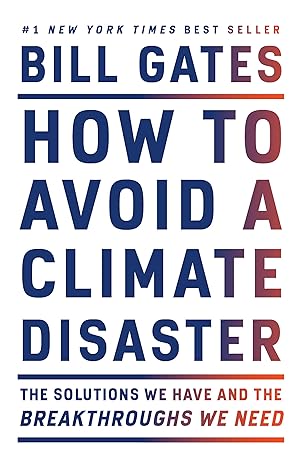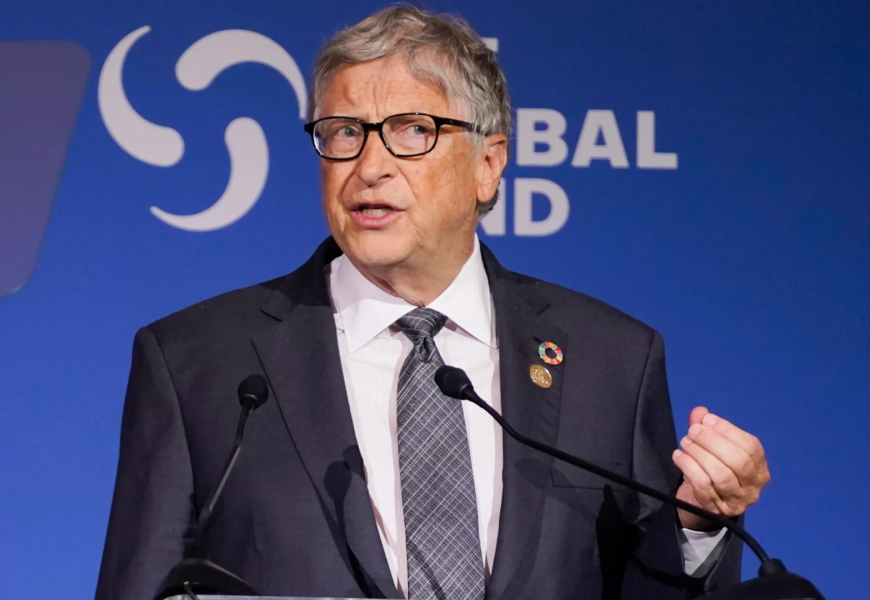Bill Gates is no stranger to the public stage, but over the recent years he has offered some of the most candid revelations and provocative declarations of his life. From admitting regrets to laying out sweeping “grand plans” for reshaping the world, his interviews have both inspired and puzzled – even shocked – his followers. In this article, we examine some of these confessions, highlight a recent interview that stirred controversy, and trace the contours of his “master plan” for global transformation. At the end, we also spotlight his new memoir and encourage readers to explore it.
Early Confessions and Self-Reflection
Gates has long been known as a visionary technologist and philanthropist. Yet as he has matured, his public persona has softened with introspection. In a blog post titled “My first memoir, Source Code, is here”, Gates reflects on how rarely he has spoken about his internal life. He confesses that he tends to focus outward—on ideas, innovation, challenges—but rarely on himself. Gates Notes
He writes:
“One thing that isn’t on that list [of topics I speak about]: myself … I’ve rarely spoken or written about my own story or revealed details of my personal life.” Gates Notes
This admission underscores a certain humility: despite being among the world’s wealthiest and most influential people, Gates acknowledges how guarded he has remained about his own emotions, inner conflicts, and personal development.
In his new memoir Source Code: My Beginnings, he opens up more. He discusses his teenage years, his relationship with his parents, and the process of revisiting old memories and stories from friends and family. Gates Notes+1 He even hints that if he were growing up today, some of his traits might have led to an autism-spectrum diagnosis—something he decided to mention only in the epilogue. People.com
By shifting focus from the impersonal “impact projects” to his own inner life, Gates both humanizes himself and invites readers to see the emotional foundations behind his extraordinary ambitions.
The “Shocking” Interview: Accelerated Giving and Harsh Warnings
In May 2025, Bill Gates gave an interview to Reuters that grabbed headlines around the world. In it, he announced that he would accelerate his plan to give away nearly all of his fortune—roughly $200 billion—over the next two decades. Reuters+2Reuters+2
More controversially, he warned of a reversal of decades of mortality progress if international aid is slashed. He said:
“The number of deaths will start going up for the first time … it’s going to be millions more deaths because of the resources.” Reuters+2Reuters+2
He singled out recent U.S. cuts to foreign aid, and criticized Elon Musk’s outspoken remarks and actions toward USAID, even calling them “very unfortunate.” Reuters+2Reuters+2
The tone of the interview was urgent, dramatic, and – to many fans and observers – unsettling. A man once seen as calmly optimistic now sounded like a prophet warning of collapse. Some readers interpreted his words as bordering on alarmism: he appeared to suggest that without immediate, large-scale action (including his own drastic financial pledges), global health and human wellbeing might unravel.
He also revealed that his foundation is now slated to wind down by 31 December 2045, after distributing most of its remaining assets. The Guardian+2Reuters+2
This interview sent shockwaves: many long followed Gates as a steady voice of hope and progress. Here, he sounded less like a confident builder and more like a man sounding a global alarm.
The Grand Plan: Gates’s Vision for World Transformation
What exactly is this “grand plan” that Gates hints at? From multiple interviews and public statements, several key threads emerge.
1. Accelerated Philanthropic Spending
One central pillar is the decision to accelerate his giving timeline. Instead of spacing his philanthropy across many decades, he now plans to pour his wealth into urgent challenges over the next twenty years. Reuters+3Reuters+3Forbes+3
His reasoning is stark: the world’s problems—child mortality, disease, climate change—cannot wait. He argues that delaying spending reduces impact and yields no returns in human lives saved. This urgency underlies much of his recent rhetoric.
2. Bridging the Aid Gap
Gates repeatedly warns that governments are retreating from global health and development funding. In his Reuters interview, he lamented cuts to USAID programs and argued that philanthropy alone cannot replace government effort. Reuters+3Reuters+3Reuters+3
He describes a vision in which philanthropic capital acts as catalyst, filling urgent gaps and pushing governments to re-engage. But he also admits that foundations have limitations and cannot permanently substitute public sector commitment.
3. Innovation as the Engine
Throughout his career, Gates has been obsessed with innovation. His vision for world transformation leans heavily on scientific breakthroughs—new vaccines, energy technologies, sanitation systems, climate solutions. In a Wired interview, for example, he laid out his detailed plan for how to achieve net-zero carbon emissions by 2050, using a concept he calls the “green premium”—the extra cost of choosing a clean technology over a conventional one. He argued that reducing the green premium is key to large-scale adoption. WIRED
Similarly, in his 2013 essay “Here’s My Plan to Improve Our World,” Gates lays out how catalytic philanthropy can push innovation in education, disease, agriculture, and sanitation. WIRED
Thus, in Gates’s vision, bold giving + systemic innovation = lasting change.
4. Exit Strategy for His Foundation
A striking feature of his grand plan is the built-in sunset clause: the foundation will close by 2045. This is deliberate, he says: to prevent institutional bureaucratization and ensure that resources are used while they remain relevant. The Guardian+2Reuters+2
By committing to closure, Gates signals urgency and avoids the trap of endless expansion. Critics and supporters alike see it as both a symbolic and practical feature of his plan.
5. Global Health and Mortality Reversal
One of the most dramatic claims in his recent interviews is the possibility of a reversal in mortality rates. Decades of progress in reducing child deaths, fighting malaria, HIV, and TB might reverse if funding collapses. He frames much of his urging in those existential terms, suggesting that his giving is partly preventive—to avert a backslide. PBS+3Reuters+3Reuters+3
This narrative heightens the stakes and underlines the urgency he perceives.
Reactions, Critiques, and Fan Reactions
Gates’s more aggressive rhetoric has generated mixed reactions. Some fans and observers praised his decisiveness and moral clarity. Others view the tone as overly dramatic or even fear-mongering.
Critics question whether a private individual—even one as resourceful as Gates—should wield such influence in global health and policy. They caution against concentrated power, technocratic decision-making, and philanthropic overreach.
Still others ask: Is his plan feasible? Will governments respond? Can innovation scale fast enough? These debates echo long-standing tensions between public and private roles in global development.
When he said, “If you don’t like what I’m doing, give away your money too,” in a Times (UK) interview, he challenged critics to act instead of merely criticizing. The Times+1
To fans, the tone shift was jarring. The hopeful innovator now speaks with urgent warning. Some felt galvanised, others unsettled.
A Closer Look: Key Interviews to Read
If you want to dive deeper, here are a few key original interviews worth reading or watching:
- Reuters “Bill Gates speaks about plan to give away $200 billion” — the explosive 2025 interview that laid bare his accelerated giving plan and warnings about mortality reversal. Reuters+1
- Wired “Bill Gates has a plan to save the world. Will the world listen?” — a wide-ranging interview on climate, innovation, and net-zero strategy. WIRED
- Gates’s own essay “Here’s My Plan to Improve Our World” — while not an interview, this remains one of his clearest public statements of his philosophy and mission. WIRED
- Times (UK) interview “If you don’t like what I’m doing, give away your money too” — a confrontational public remark toward critics. The Times+1
These sources allow readers to judge for themselves his tone, arguments, and stakes.
Why His New Memoir Matters
While Gates has spoken often about global projects, his memoir Source Code: My Beginnings provides a rare peek behind the mask. The Guardian+3Gates Notes+3Forbes+3
In it, he traces his formative years, early obsessions, family influences, and the birth of Microsoft. Critics praised its frank tone and the way it humanizes a figure often seen as distant or hyper-rational. The Guardian+1
Gates himself points out that writing the book helped him see how early events shaped his later ambitions. Gates Notes
Perhaps most importantly, the memoir provides context for the intense urgency he exhibits in his recent interviews: the man making bold, even frightening claims is not just a power broker—but someone reflecting on mortality, legacy, morality, and purpose.
In Conclusion: A Legacy in Motion
Bill Gates today warps the boundary between philanthropist, activist, and global strategist. His recent confessions and dramatic public statements mark a new phase: the personal and public are merging, the urgency is rising, and the stakes feel existential.
Whether his bold predictions are accurate, or whether his accelerated plan will fulfill its promise, is yet to be seen. But one thing is certain: his latest interviews and his memoir Source Code demand attention—not just from technologists or philanthropists, but from anyone concerned about humanity’s trajectory.
If you want to understand his worldview from the inside out, I strongly recommend reading Source Code: My Beginnings. It’s available via major booksellers (including in the UK and US) and reveals the man behind the mission. Gates Notes+2Forbes+2
If you’re eager to learn more, don’t miss your chance to get Bill Gates’ book from us — a must-read for anyone who wants to think big and make an impact.

How to Avoid a Climate Disaster: The Solutions We Have and the Breakthroughs We Need
#1 NEW YORK TIMES BEST SELLER • In this urgent, authoritative book, Bill Gates sets out a wide-ranging, practical—and accessible—plan for how the world can get to zero greenhouse gas emissions in time to avoid a climate catastrophe.






